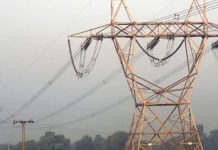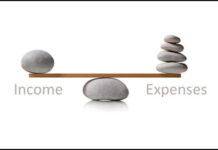Taking days off work can help a person to live longer, new research has found.
A 40-year study concluded that people who took fewer than three weeks of annual leave were a third more likely to die young than those who took more.
Researchers said a healthy diet and regular exercise were still no substitute for time off when it came to relieving stress.
“Don’t think having an otherwise healthy lifestyle will compensate for working too hard and not taking holidays,” said Professor Timo Strandberg, of the University of Helsinki in Finland.

Increasing scientific studies nowadays are showing that how a suitable work-life balance is essential for an individual physical and mental health and is not just an empty threat.
Humans have bounded physical and mental capacity and we can categorize our capacities as scarce one. If we can divide it in units than we can easily elaborate the fact that the more we consume the less is left.
The labour a person provides in any economy and society is like a resource which if exploited extravagantly will result in early exhausting of the resource and if utilized properly and in balanced manner will last longer. And if the resource exhaust, its source also succumbs.
In economics, a measure of the work done by human beings is designated as labour. It is conventionally contrasted with such other factors of production as land and capital. Like land and capital, the labour also is also considered a scarce – limited resource.
But in a social relationship based on an asymmetry in a power relationship between workers and their employers and a corporate environment of profit maximizing and greed culture , the finite resource of human labours are also exploited by bad to the bone management.
Exploitation of employees can take place in two forms – transitional or structural. In the transitional case, the unfairness is a property of a discrete transaction between two or more individuals for example companies that pays low wages against hard performed labor by an employee.
Low wages should be recognized as an occupational health threat, according to an editorial in the Journal of Occupational and Environmental Medicine, official publication of the American College of Occupational and Environmental Medicine (ACOEM).

“Workers earning low wages may be at greater risk for disease and injury than workers earning high wages,” write J. Paul Leigh, PhD, and Roberto De Vogli, PhD, MPH, of University of California Davis School of Medicine. They believe that low wages should be considered among the psychosocial factors — such as long work hours and high job strain — identified as occupational risks to health.
But exploitation can also be structural—a property of institutions or systems in which the “rules of the game” unfairly benefit one group of people to the detriment of another. When the upper management sees their perks and benefits and salary raise getting bigger and bigger while the lower layers of staff is left to their own devices to struggle with rising inflation without any suitable employment benefits, pay raise or share in companies profit.
Beside working inside in such exploitative machinery and system when an individual doesn’t get a chance to refill the lost energy his capacity to perform efficiently shrinks and with continuous streak of such burden the labour is suck out of a person with a void which is filled with depression and the result is what recent scientific studies predict in such environment with higher chances of cardiovascular diseases, less effective immune system and various mental problems.
But we are not merely an economic object, whose life only has value in terms the labour we produce. We are more than that and we have other obligations in life to fulfill and other opportunities to catch.
But if we spend nearly all our waking hours working than we have just demoted ourselves to an economic object whose main value is what we can produce in terms of goods and services and nothing more that that. A factor of production only consumed in process of manufacturing the final commodity.
We are just degraded to life less object like any raw material required to manufacture a good.
This can be ultimately summarized as life can take us on a wild and busy ride.
It’s easy to get swept up in work and the everyday demands of life and forget its true purpose.
Along the way we have to learn to make trade-offs between professional endeavors and family, friends, community, and personal growth.
As also indicated in Para 2 of Project: Time Off “The State of American Vacation” report for 2017 that planning for and taking time off benefits individual well-being and professional success, business performance, and the broader economy’.
In the matrix of work, job and employment, the organization and employers need to recognize that they are dealing with humans not an economic object that can be exploited.
Everyone has rights: right to have better pay, right to have share in organizations profit, right for personal growth and most important right to rest and take time off after continously going through excessive routine work impacting their psychological and mental health.
Proper time off has deep rooted implications on an individual’s life.





























